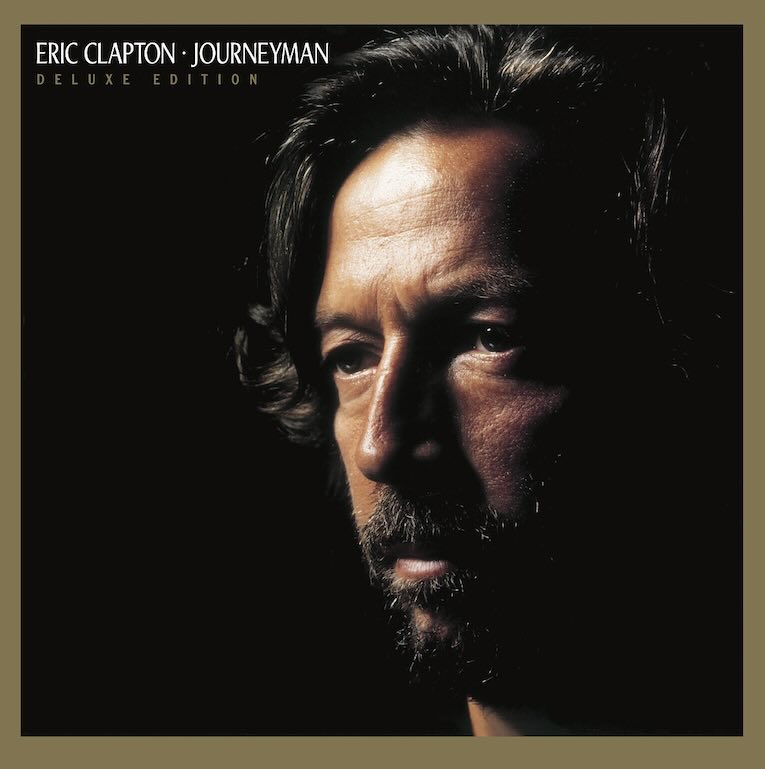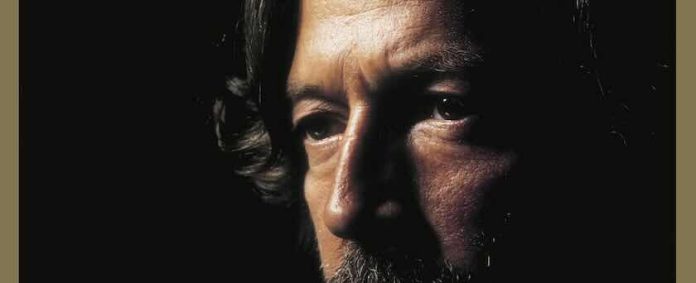
Review: Eric Clapton ‘Journeyman: Deluxe Edition’
By Hal Horowitz
It’s worth remembering that in the mid-late 80s, Eric Clapton wasn’t firing on all cylinders. He had all but abandoned the powerful blues and blues-rocking that helped make him a superstar, instead focusing on slick, commercially viable pop that frustrated his core roots audience and left critics cold. The albums were adequate and professionally constructed, but far from inspired.
Then came 1988s ‘Crossroads.’ That four-CD anthology tracked Slowhand’s extensive and influential resume starting with the Yardbirds, John Mayall and Cream, then continuing through his solo years. It was a hit; an early example of how expanded artist overview packages could also be financially viable. More importantly, the collection reignited interest in the singer/songwriter/guitarist while setting a high standard for what well-constructed box anthologies could accomplish.
It wasn’t lost on Clapton, who had notably kicked a longtime drug and alcohol addiction. There is no mistaking why he titled this 1989 record, his eleventh, ‘Journeyman.’ The word reflects his philosophy of a working musician dedicated to keeping his musical flame alive as something of a life’s mission.
Although that return to deeper blues wouldn’t arrive until 1994s superb ‘From the Cradle’ (and to a slightly lesser extent on 1992s GRAMMY winning ‘Unplugged’), there are flashes of a tougher approach on ‘Journeyman.’ Clapton only co-wrote two of the dozen tracks, handing that job over to Jerry Lynn Williams who penned five. And even if the audio sheen of the past few albums hadn’t been totally erased (particularly in respect to the exaggerated drums), he sounded more at ease with even the most pop-styled material. His guitar often exhibited the fire and determination missing from recent releases.
Notably, he covered Bo Diddley’s “Before You Accuse Me” (a highlight of ‘Unplugged’), and Ray Charles’ “Hard Times.” The latter benefits from a lovely, stark arrangement with subtle horns and is one of the set’s most poignant and emotional moments. Even a rugged take on Leiber-Stoller’s “Hound Dog” owed more to Big Mama Thornton’s original then Elvis’, especially as Clapton’s raw singing approximated her growl.
The more pop-oriented “Alibis” showed some of the old guitar flame even if it was on the slight side. While having George Harrison contribute a song he also played on, “Run So Far,” was noteworthy, it isn’t a memorable moment.
On “Bad Love” though, co-written with Mick Jones, Clapton nails a tough rocker with conviction. But the highlight is “Old Love.” This near seven-minute partnership between Robert Cray and Clapton (those two should have made a full album together) finds the elusive sweet spot between smooth melody and pulsating blues. Both guitars take leads, weaving around each other, creating a tart tapestry of sound. It’s one of Clapton’s finest collaborations.
The sprawling supporting cast (nearly forty musicians are listed), includes high-profile names such as jazz legend Gary Burton (vibes), David Sanborn, David “Fathead” Newman and Hank Crawford (saxes) along with soul singers Chaka Khan and Daryl Hall.
Remastered audio and four extra tracks are now added to the already generous hour-long playing time for this “deluxe” reissue. Of those, an earnest version of Elton John’s “Border Song” and “Forever” fit well within Clapton’s melodic ballad mode.
‘Journeyman’ was popular enough on its initial issue to crack double platinum status in the US alone with “Bad Love” winning a GRAMMY for Best Male Rock Performance. But that was 35 years ago, making it ripe for rediscovery with a generation that might have missed out the first time around.
Watch “Pretending”
Go to Top








